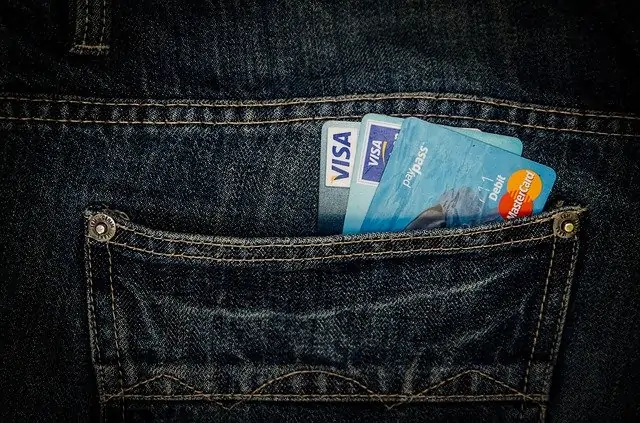This post contains affiliate links. It means that if you click on the links and make a purchase, we will receive a small commission at no additional cost to you. This allows our blog to continue providing you with free information. We only include links and products that we truly believe in. You can read the full disclosure here.
Moving to Germany or new in Germany? Check out our Resources Page for all the help you need!
After moving to Germany, you will probably hear the word “SCHUFA” from time to time. But what is SCHUFA exactly? Why is it so important to your life in Germany? How to get your SCHUFA report and correct any mistakes if needed? How to keep a high SCHUFA score? In this article, you will find all you need to know about SCHUFA.
Table of Contents
ToggleWhat is SCHUFA?
SCHUFA stands for “Schutzgemeinschaft für allgemeine Kreditsicherung“. In English, it means “General credit protection agency”. SCHUFA is a private company founded in 1927. It is the largest credit agency in Germany.
The company collects data from other companies involved in the lending process, such as banks, utility providers, telecommunication companies, etc.
SCHUFA stores your personal information like your name, birthday, and address. It also records information about your bank accounts, installment payments, credit card transactions, loans, and other contracts such as phone and internet. Besides, it collects data relating to your unpaid bills and fines.
With this data, SCHUFA knows your past payment history and it uses its own algorithm to forecast your future payment behavior. Then, it calculates a credit score for you that reflects your ability to pay your bills.
The algorithm SCHUFA uses is a trade secret. So, you can’t know exactly how your score is calculated. What we know is that SCHUFA does not take into account your income level or employment status. It only uses information showing if you are paying your loans, bills, contracts, and fines on time. So, even when you are very rich, you can have a bad SCHUFA score if you do not pay your bills on time.
SCHUFA doesn’t only create credit scores for all the residents in Germany, but also for people living in many other EU countries. Its aim is to protect its clients from credit risks.
Read also: Best Blocked Bank Account in Germany – Compare the Top 3
How does SCHUFA get your details?
As mentioned before, SCHUFA collects data from other companies. When you sign a contract (e.g. your phone contract), there is usually a “SCHUFA clause” stated in it.
It means that if you sign it, you agree that the phone company can forward your data to SCHUFA. That is how SCHUFA gets your data.
Besides, by signing the SCHUFA clause, you also authorize the company to make SCHUFA inquiries on you. It means that the company can ask SCHUFA to get your SCHUFA report, which shows your payment reliability.
Why is SCHUFA so important?
Now, you know what is SCHUFA. Why is it so important? You may ask.
Well, SCHUFA affects your daily life in Germany in many different ways. Banks and other companies will check your SCHUFA score to see if you are trustworthy enough to be their customer. Below are some examples.
- You want to sign up for a long-term contract like a mobile phone plan or an internet contract. The providers will check your SCHUFA score because they allow you to use their services (e.g. making calls) before you are billed.
- You want to apply for a loan. Maybe because you want to buy a car in Germany and finance the purchase. Or you want to get a mortgage for buying a house in Germany. If you have a bad SCHUFA score, you may have to pay a high interest rate. Or you may not get the loan at all.
- You want to lease a car in Germany.
- If you are looking for an unfurnished apartment in Germany for the long term, most landlords will require you to show them your SCHUFA report before you can even view the flat.
- Your SCHUFA score is important if you want to make any purchase that needs payment in installments. For example, purchase of furniture or consumer electronics.
- You want to open a bank account in Germany with overdraft possibility or get a credit card from a bank.
- You want to purchase on account in any online shops.
So, you can see that SCHUFA is very important in Germany. Without a good SCHUFA score, you may not be able to get basic things like a phone, internet, bank account, or even a place to live in Germany.
How to get your SCHUFA record for free?
According to the law, you have the right to review your SCHUFA data as a German resident. You can request a data copy (Datenkopie) from SCHUFA once a year for free.
- Go to this page.
- You can see that there are two choices. One is called “meineSCHUFA premium”. And the other one is called “Datenkopie”. Choose the “Datenkopie” by clicking “Jetzt beantragen”.
- On the next page, enter your personal information. You can also upload your passport, ID, and registration certificate (Meldebescheinigung) there.
- After you submit the information, you will get your data copy by mail in about 2 weeks.
It is recommended to request your free SCHUFA record once a year. You can see in the record what information is stored, where the information came from, and where it was forwarded to. You should check the accuracy of the record and correct any mistakes if needed.
Note that this free SCHUFA report is for your own record only. It contains a lot of your personal data that you probably won’t want to forward to your landlord or other parties. It is good to order this free report once a year to monitor your SCHUFA score. But if you need a SCHUFA report for a third party such as your landlord or internet provider, you will need to order a paid SCHUFA report.
How to get a paid SCHUFA report (BonitätsAuskunft)?
As mentioned before, the free SCHUFA report is for your own record only. It shows you what data is stored. You should not send it to other third parties because it contains your sensitive personal data. On the other hand, the paid SCHUFA report contains an official certificate that you can pass to your landlord or other third parties.
Many landlords request a paid SCHUFA report because the paid version contains all the details they need. This paid SCHUFA report is called “BonitätsAuskunft”.
Note that most landlords require a recent SCHUFA report. So, it is best if you order one when you start looking for an apartment.
The easiest way to get a BonitätsAuskunft is to order it online.
- Go to this page.
- Click “Jetzt bestellen” to order the paid SCHUFA report.
- Fill in your personal data, payment information, and follow the order process. It will cost 29.95 Euros.
- You should receive your BonitätsAuskunft in a few days by mail.
What if you need your SCHUFA report quickly?
As you may already know, it can be extremely challenging to find a place to live in Germany. So, if your potential landlord asks for your SCHUFA report, you should show your report quickly to increase your chance of getting the apartment.
The fastest way to get a BonitätsAuskunft is to order it in person.
- Bring your passport and registration certificate (Meldebescheinigung) and visit one of the Postbank or Volksbank branches.
- Order your SCHUFA report there for 29.95 Euros. You can do so even if you are not a customer.
- The bank will print the BonitätsAuskunft for you in a few minutes.
What is SCHUFA credit check (BonitätsCheck)?
The BonitätsCheck is a short online version of the BonitätsAuskunft. It contains specific and relevant information for your landlords. You can order BonitätsCheck online within a few minutes, download it and forward it to your landlord.
BonitätsCheck is an official certificate that landlords accept. However, it does not contain so many details like the BonitätsAuskunft and it will still cost the same 29.95 Euros.
What is a good SCHUFA score?
Your SCHUFA score starts at 100%, which is also called a basic score (“Basisscore” in German). The score is updated every 3 months. And it will decrease if you do not pay your bills. The lowering of your score means that you are unlikely to get more loans. This is to prevent that you have too many debts.
It is not really possible to have a 100% score. Even if you pay all your bills on time, your score will still be a bit lower than 100% because there are other risk factors. For example, if you die unexpectedly, your death will still be a credit risk for the lending companies. But don’t worry. It is totally fine if you have a SCHUFA score of 95% or above.
Have a look at the below table to learn what a good SCHUFA score is. The higher the score, the more likely you will pay your bills on time.
|
SCHUFA score |
Your credit risk level |
|
> 97,5 % |
Very low risk |
|
95 % – 97,5 % |
Low to negligible risk |
|
90 % – 95 % |
Satisfactory to increased risk |
|
80 % – 90 % |
Considerably increased to high risk |
|
50 % – 80 % |
Very high risk |
|
< 50 % |
Very critical risk |
As you can see, it is considered okay if you have a SCHUFA score that is higher than 90%. However, you should try to keep your SCHUFA score at 95% or above. If you have a SCHUFA score that is between 90% – 95%, it already indicates a certain level of credit risks associated with you. And you may have problems dealing with certain providers or landlords.
How to keep a good SCHUFA score?
Your SCHUFA score is affected by many different factors. For some of the factors, they are out of your control. For example, your age has an impact on your SCHUFA score. Older people are considered more financially stable than younger people. However, you have total control over many other factors. Below are some things that you can do to keep a good SCHUFA score:
- Avoid having too many credit cards. Cancel them if you don’t need them.
- Avoid having too many bank accounts in different banks. Cancel any inactive bank accounts.
- Do not change your bank account frequently.
- Keep a healthy balance in your bank accounts if possible.
- Always pay your bills and pay them on time. In case of any financial difficulties, talk to your creditors and make a new payment plan.
- Avoid using your bank overdraft.
- Avoid changing your address too frequently. However, your SCHUFA score will not be affected by the place you live.
- When you shop, avoid paying in installments too frequently.
- Check your SCHUFA score once a year for accuracy. Ask for a correction in case of any mistakes. Note also that the number of times you request your SCHUFA document will not affect your score.
- Avoid too many loans. Having one bigger loan is better for your SCHUFA score than having many small loans.
When is your SCHUFA record created?
When you first move to Germany, you won’t have any SCHUFA record yet. But when you live in Germany over time, your SCHUFA record will be automatically created. You will start your SCHUFA record when you register your address at the citizen’s office (Bürgeramt). Whenever you open a bank account or have a phone/ internet contract, your SCHUFA record will be calculated accordingly.
How to rent an apartment in Germany without SCHUFA?
After you move to Germany, you need to register your address at the citizen’s office (Bürgeramt). It is because you need the registration certificate (Meldebescheinigung) to open a bank account.
Here is the dilemma. You want to find a place to live in Germany. But most landlords require you to show them your SCHUFA. You don’t have your SCHUFA record yet because you have not registered your address and have no bank account. Without SCHUFA, you cannot find a flat…
If you find yourself in this dilemma, you can try the following:
- Try to look for flats that don’t require you to show your SCHUFA report. Most landlords do require the report. But you may be lucky to find a landlord who doesn’t. And maybe you can then show the landlord your recent bank statement or pay a deposit instead.
- Rent a temporary furnished flat first via platforms like Homelike. This allows you to use the address to get your registration certificate. Once you have your registration certificate, you can open a bank account and you will start to have your SCHUFA record. Then, you can use your SCHUFA record to look for an unfurnished flat for the long term afterward.
- If you do not mind living with someone else, another way is to find a shared apartment first via platforms like WG-gesucht. Similarly, you can then use your shared apartment address to get your registration certificate. And then, you can look for an unfurnished apartment for the long term.
How about your credit history in your home country?
Unfortunately, SCHUFA does not take into account your credit rating in your home country. It only collects data about your life in Germany. So, if you just move to Germany, you will have no credit history. This may make it difficult for you at the beginning. You will have to use other documents to prove your creditability. For example, your work contract in Germany, your payslips, your bank balance, etc.
How long does the data stay in your SCHUFA record?
You should try your best to keep a good SCHUFA score. If you have a negative record, it can take you 3 to 6 years to make it clean again. The duration of your SCHUFA record depends on the type of information entry.
For example, if you did not pay your loan or bill on time, this information will stay for 3 years in your SCHUFA record after you fully pay back the money. When you sign a mobile phone contract, this will create a SCHUFA record that stays for a maximum of 12 months. If you close your bank account, this SCHUFA record will be gone upon closing the account.
As you can see, if you have a negative SCHUFA entry, it can affect you for years. Don’t plan to leave your unpaid bills behind and just leave Germany, thinking that the bills will just be resolved by themselves. SCHUFA stores your data for years at a European level. You don’t want to get into trouble if you move back to Germany in the near future.
Remember, you cannot clean your SCHUFA record even when you have a lot of money or properties. SCHUFA only looks at how good you pay your bills, but not how rich you are.
So, if you have a negative SCHUFA entry, try to find out what is causing it. If it is caused by an unpaid bill, you should pay it back as soon as you can. Besides, make sure you have your other financial matters under control and avoid using any overdraft if possible.
What to do if there is an error on your SCHUFA report?
SCHUFA collects your data via other third parties like your banks and utility providers without checking the data for correctness. It is possible for mistakes to happen and wrong data to be transmitted to SCHUFA. SCHUFA is not responsible for the correctness of the data.
Therefore, if you find a mistake, you should request a correction in writing. You should contact the company that is responsible for your data transfer, e.g. your bank or utility providers. This company is responsible to notify SCHUFA to make changes to your data. It is also recommended that you contact SCHUFA at the same time to discuss this matter. The goal is to put pressure on both SCHUFA and the data transfer company to correct the mistake as soon as possible.
Conclusion
Now, you know what SCHUFA is and how it works. SCHUFA affects your life in Germany in many ways. So, you need to make sure that you have a good SCHUFA score by paying all your bills on time. Besides, it is not too complicated to get a free SCHUFA report. Make sure to order it once a year and monitor your SCHUFA score!

What is your experience with SCHUFA in Germany? Leave a comment below and share your experience!
Moving to Germany or new in Germany? Check out our Resources Page for all the help you need!
If you found this article helpful, consider supporting this website by buying me a coffee. Every small donation helps to keep this blog alive. You can also ask me any questions here. Buy me a coffee







